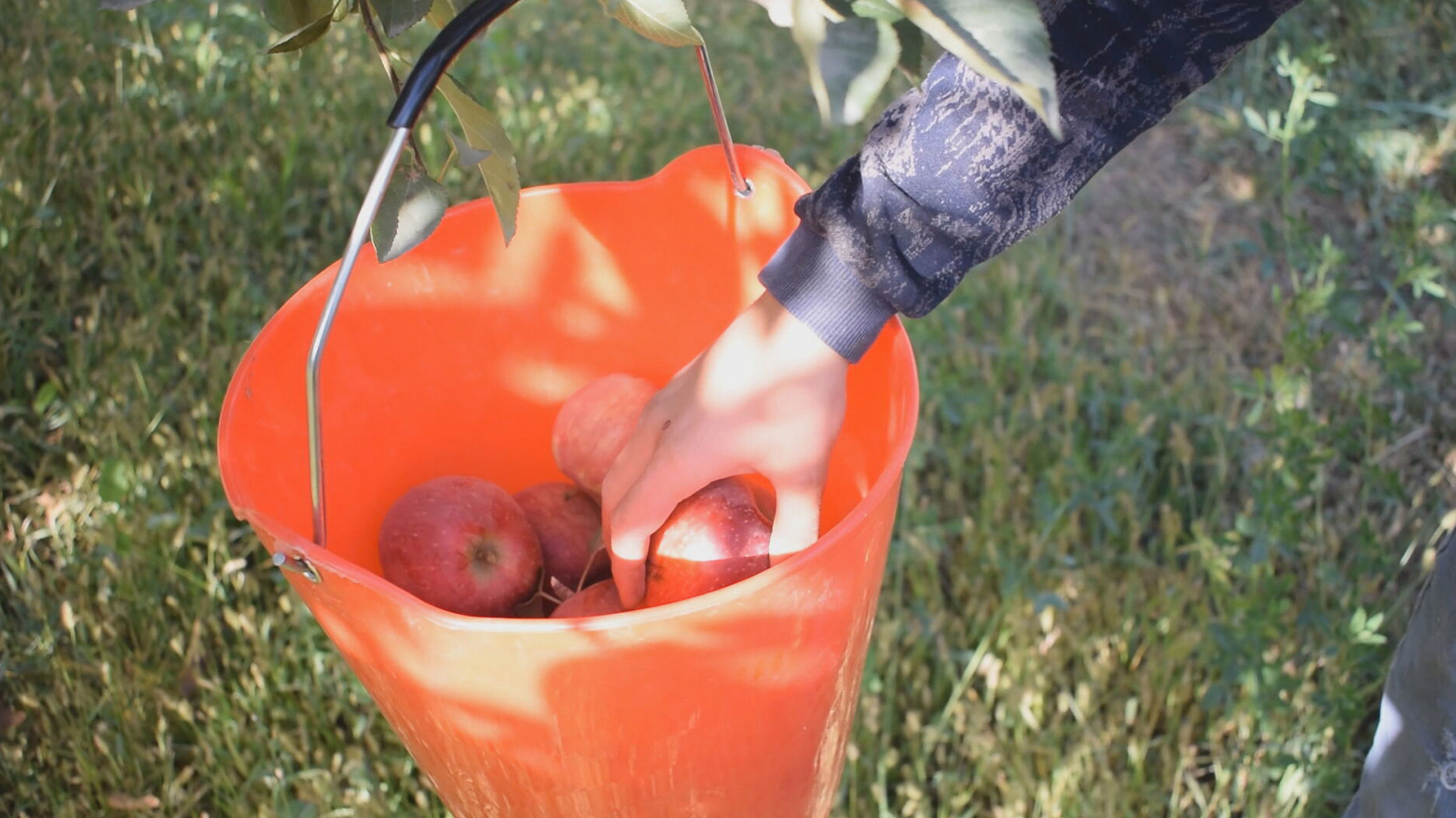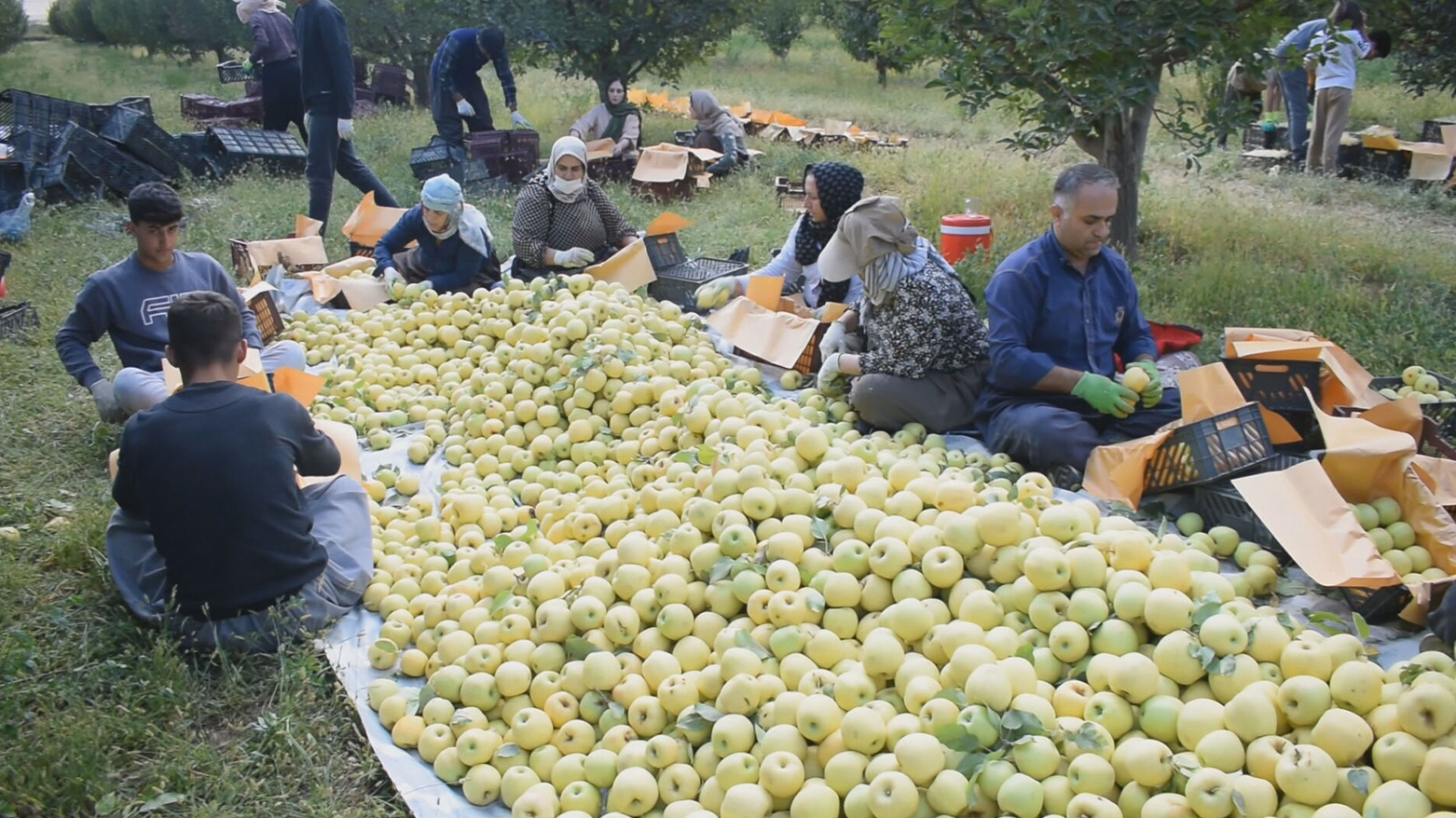Apple Harvest in Eastern Kurdistan: Tradition Confronts Economic Reality
The apple harvest in Shino, Eastern Kurdistan, is underway, but a 25% drop in production creates economic hardship for farmers and workers alike.
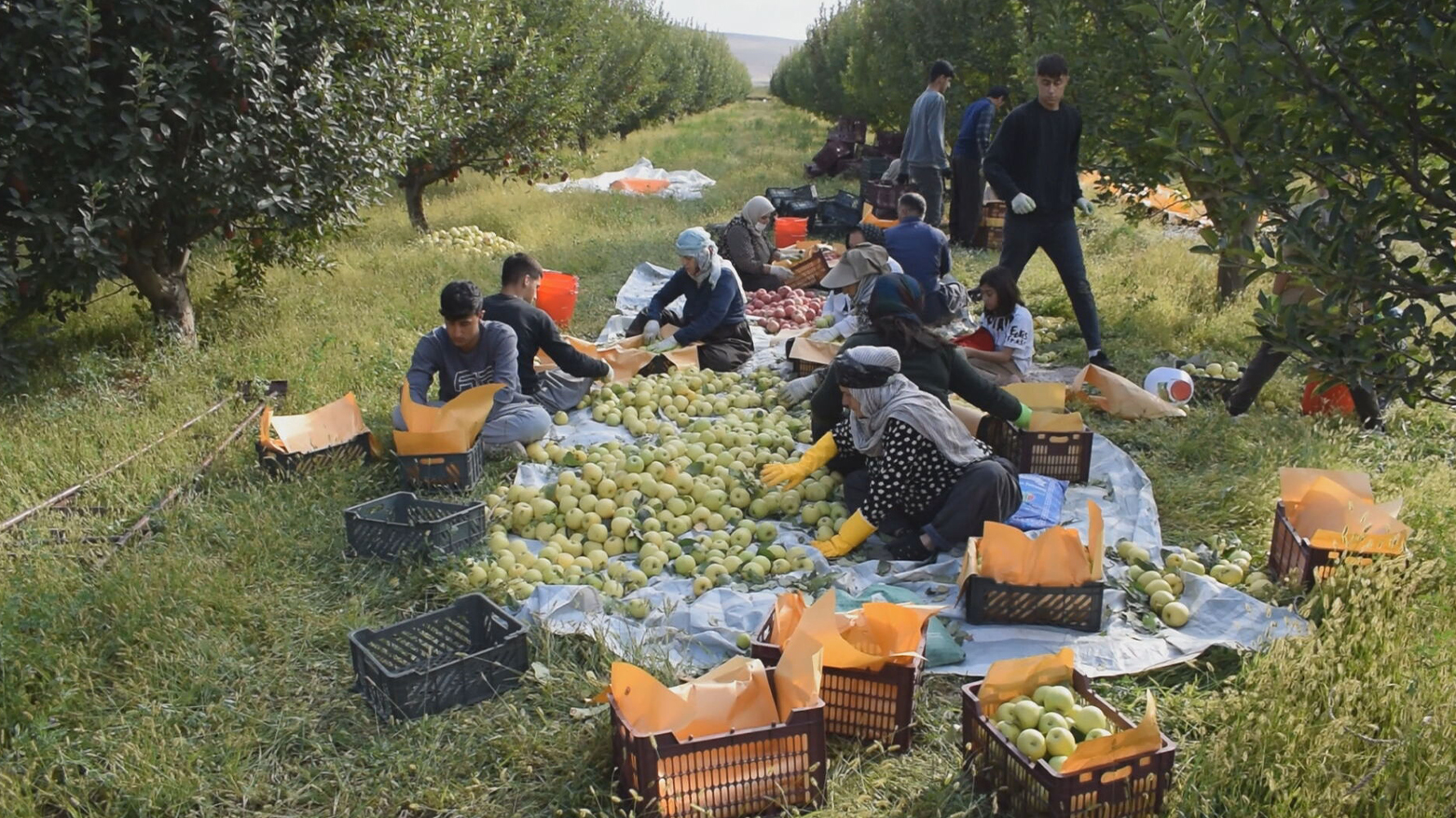
Erbil (Kurdistan24) - The air in the sprawling orchards of Shino is thick with the sweet, earthy scent of ripe apples. Rows of trees, their branches heavy with golden and red fruit, stretch towards the horizon under a vast, pale sky. Between these neat rows, the grass is dappled with sunlight and littered with fallen leaves. Here, a quiet, focused energy pervades as groups of workers, their heads covered against the sun, sit on large tarps, surrounded by veritable mountains of freshly picked apples.
Their hands, protected by gloves, move with a practiced rhythm and precision—sorting, cleaning, and carefully arranging the fruit into crates lined with orange paper. One young man, his brow furrowed in concentration, gently places the last layer of pale yellow apples into a box, his movements a blend of efficiency and care. For the past week, this scene has defined the landscape as the annual apple harvest season gets underway in this renowned agricultural heartland.
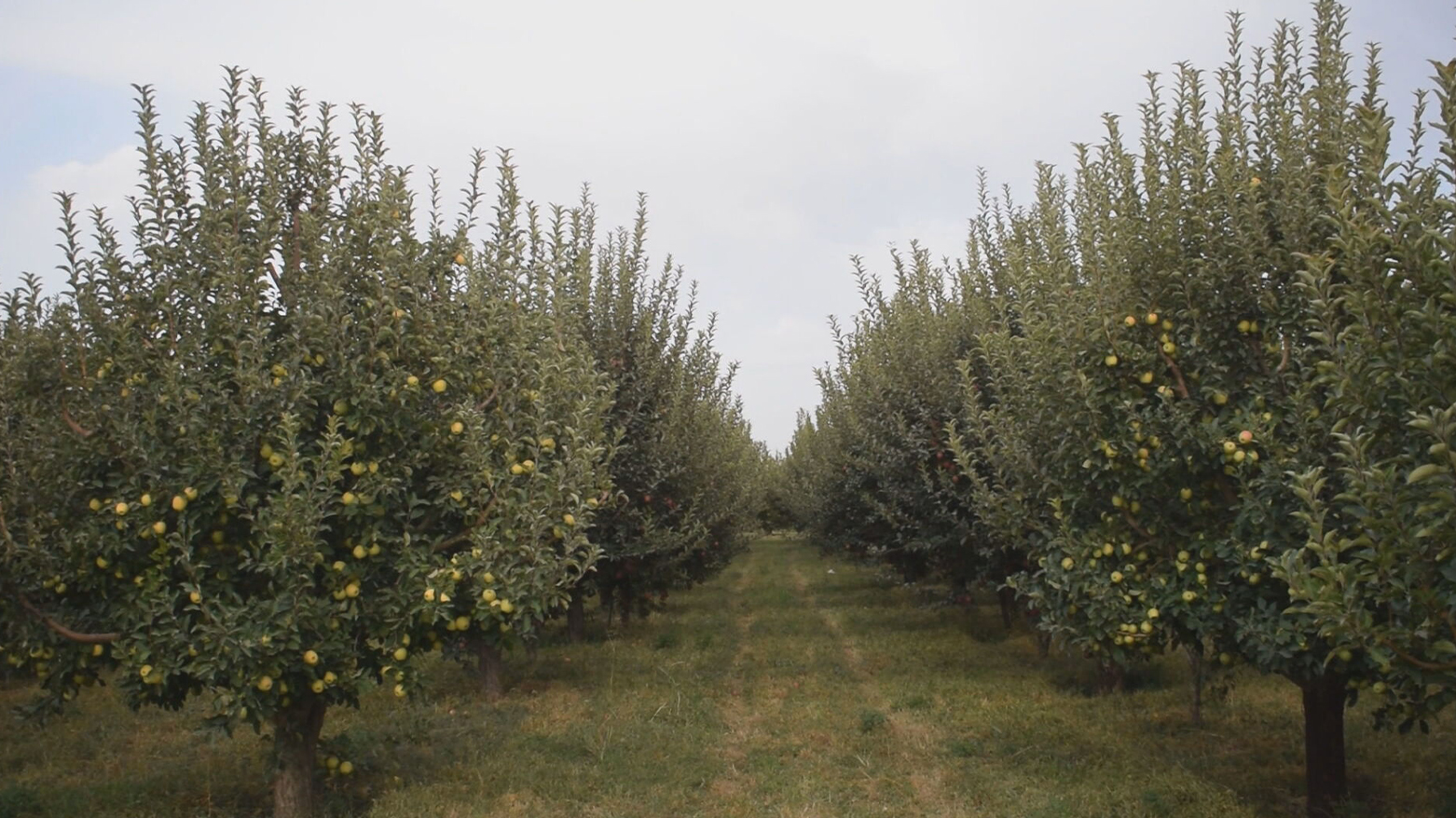
The city of Shino, located in Eastern Kurdistan (northwest of Iran), is synonymous with apple cultivation. Within its borders lie an impressive 14 thousand hectares of fruit orchards, a lush testament to the region's fertile soil and horticultural tradition. Of this vast expanse, more than eight thousand hectares are dedicated specifically to apple orchards, making the fruit a cornerstone of the local economy and culture.
The harvest is a critical time, the culmination of a year's worth of labor and hope. However, this year, a shadow of uncertainty hangs over the orchards. The Shino Agricultural Jihad Department has delivered a sobering forecast, predicting that the total yield for this season will be approximately 125,000 tons. This figure represents a significant 25% decrease compared to the previous year's production, sending ripples of concern through the community of growers and laborers who depend on this annual bounty.
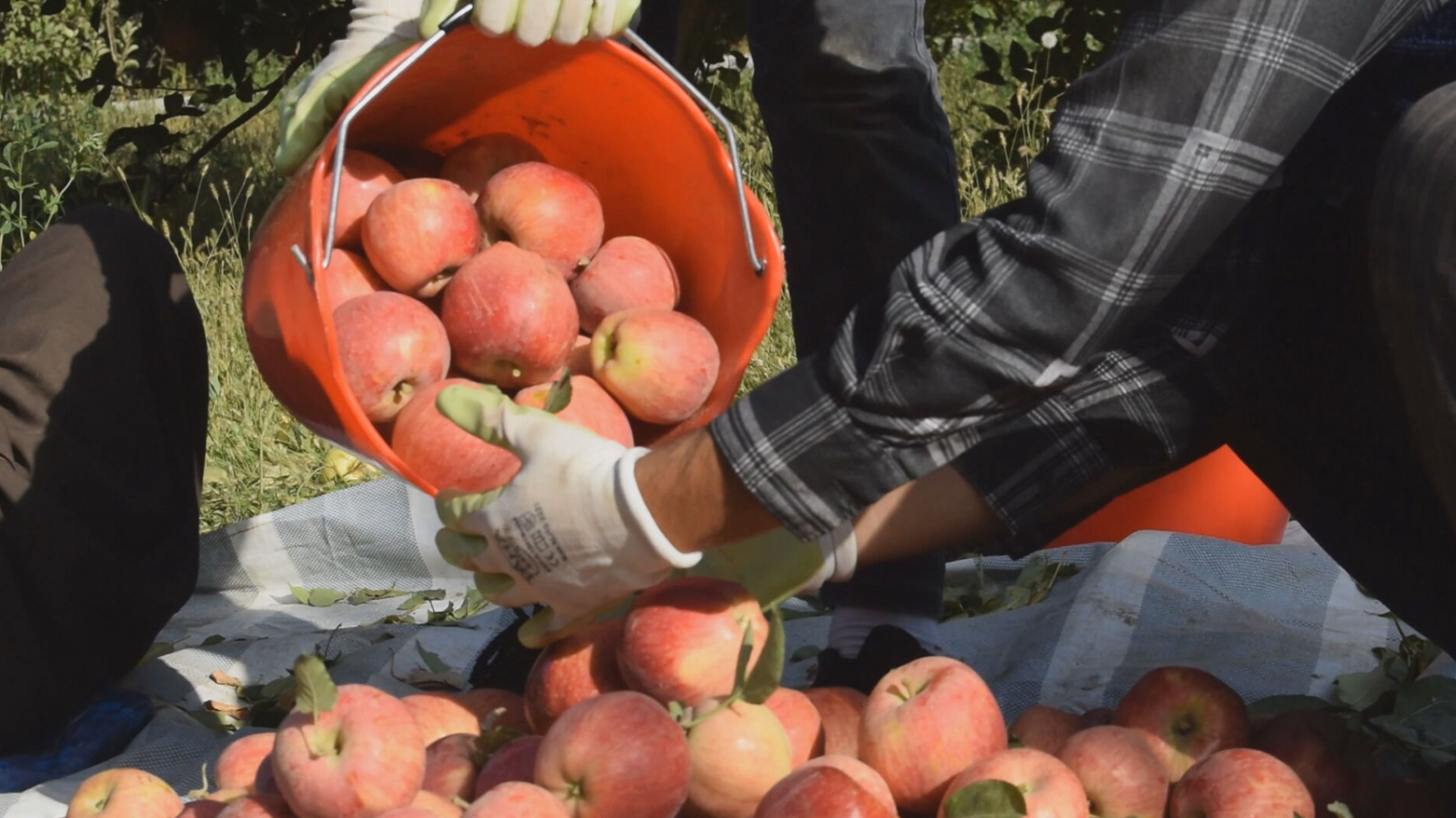
For the orchard owners, the diminished yield is compounded by a cascade of economic pressures that squeeze their already tightening margins. The cost of doing business has risen sharply, creating a perfect storm of financial challenges. The expense of transporting the delicate fruit from the orchards to markets or storage facilities has surged, cutting directly into potential profits.
Simultaneously, the fees for cold storage, an essential service for preserving a large portion of the harvest for later sale, have also increased. Perhaps the most damaging blow has been the government's policy preventing the export of apples outside of Iran.
This trade barrier has closed off lucrative international markets, forcing growers to rely solely on domestic sales and storage, and has resulted in great losses for the orchard owners who had once looked beyond the country's borders for their livelihood.
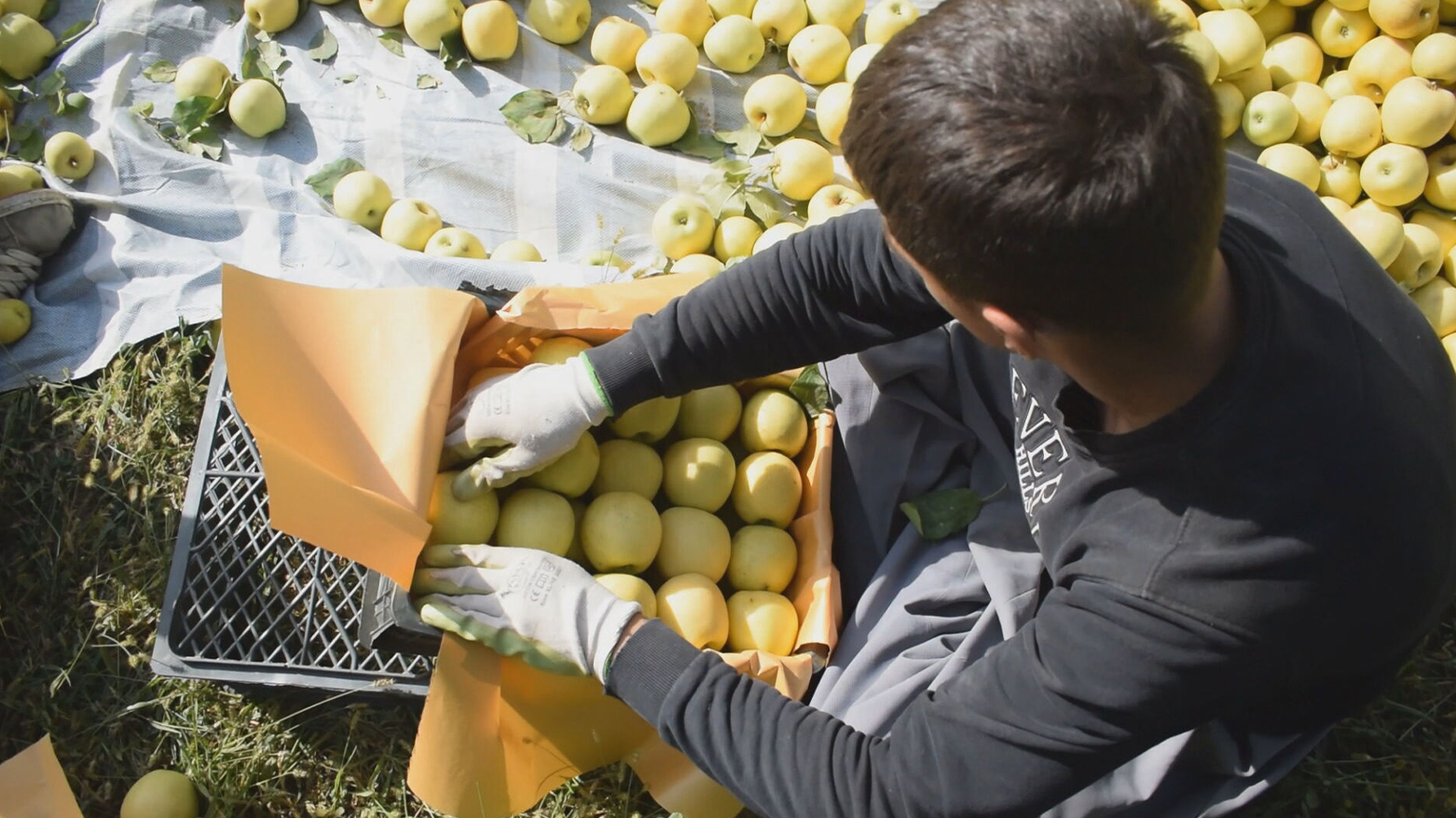
Zahir Qaderzadeh, an orchard owner whose life is intrinsically tied to the fate of these trees, understands the precariousness of the situation all too well. Standing amidst his workers, he explained the meticulous nature of their task to a Kurdistan24 reporter. "The picking, collecting, and boxing of apples requires expertise and precision," he stated, his gaze sweeping over the careful work being done.
The stakes are incredibly high, particularly for the fruit destined for long-term preservation. "Because a large portion of these apples are sent to cold storage, and if a bad apple is put into a box, it will spoil all the apples in the box."
This single detail highlights the immense pressure on the workers to be vigilant, as one small oversight can lead to the complete loss of a crate, turning potential profit into waste. Every apple is inspected, every placement is deliberate, a testament to the specialized skill required in this crucial stage of the process.
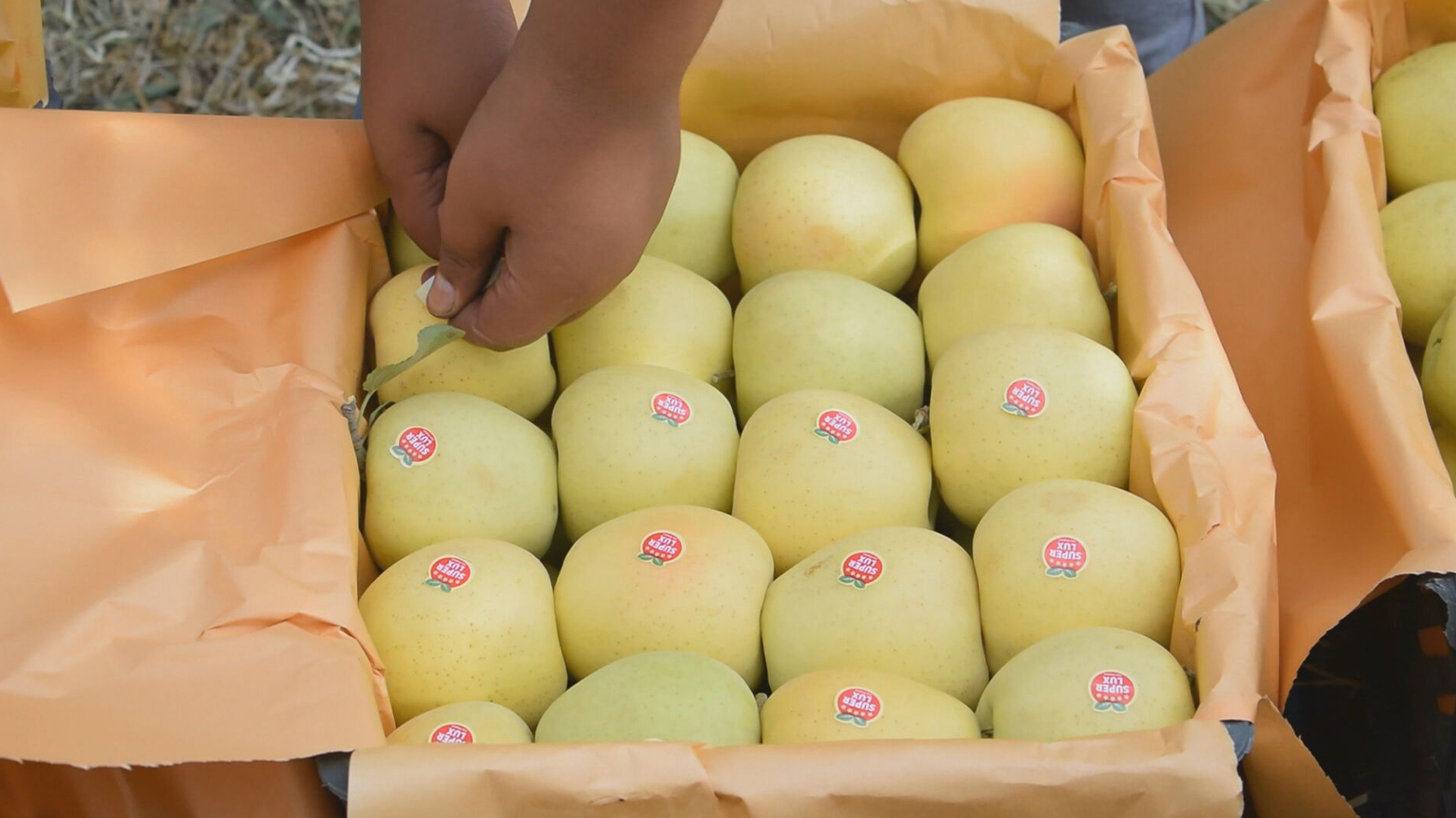
The annual apple harvest has traditionally been a vital source of seasonal employment, providing temporary but essential job opportunities for a number of citizens who possess the specific experience needed for the work.
However, the consequences of this year's reduced production extend beyond the orchard owners to the very workers who bring in the harvest. The decrease in the apple production of Shino's orchards has also reduced that job opportunity for the workers in this field.
With fewer apples to pick, sort, and pack, the demand for labor has inevitably shrunk, leaving many skilled seasonal workers with less income and a more uncertain future.
The economic ripple effect of a poor harvest is felt not just in the balance sheets of the farm owners, but in the homes of the families who rely on this seasonal income.
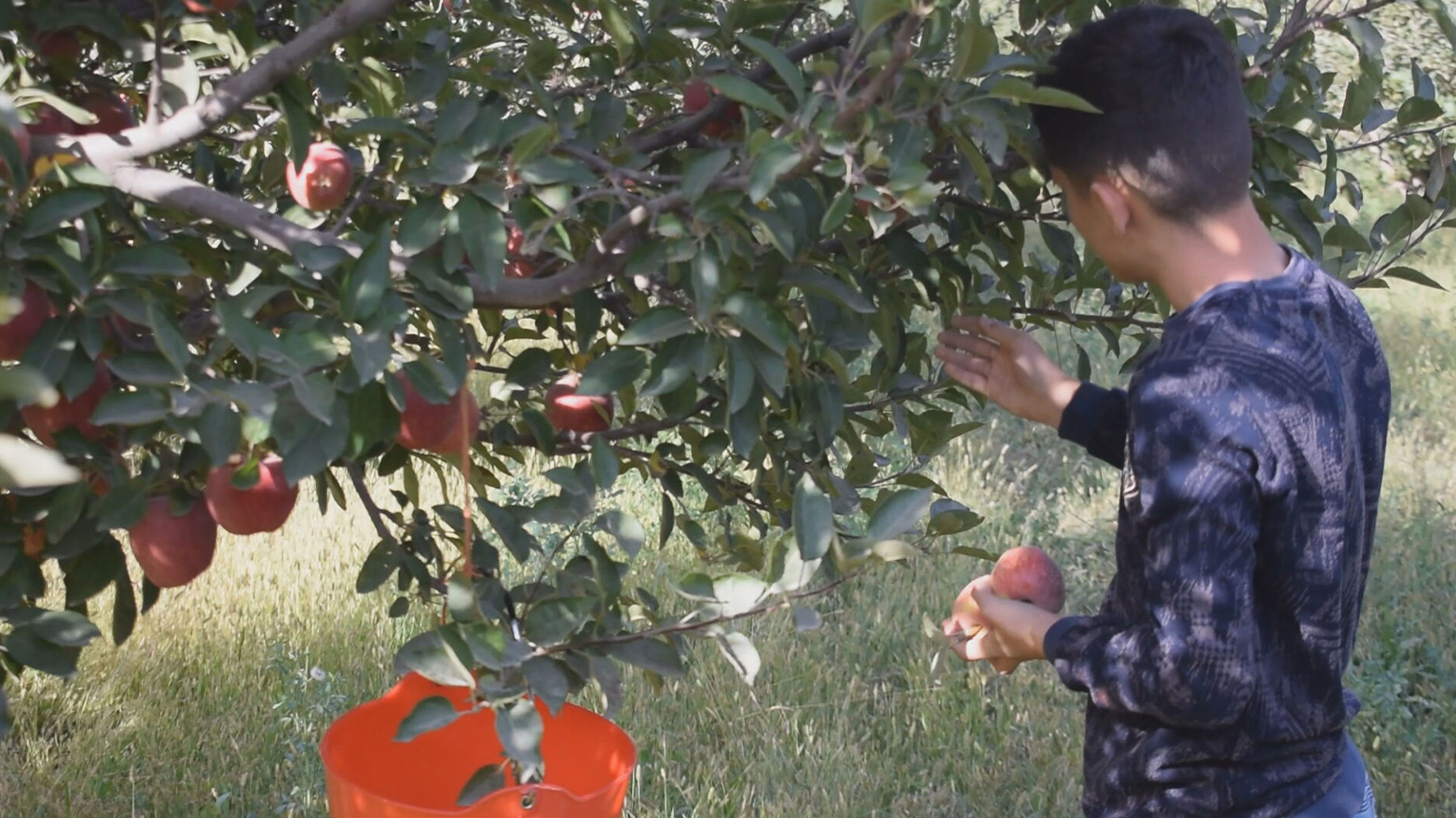
Among the workers is Sardar Mohammadi, who spoke about the journey of the apples once they leave the orchard floor. "A portion of these apples is sent to the markets of Eastern Kurdistan and other provinces of Iran," he explained, "and another portion is stored in cold storages and will be put on the market in the coming winter and spring."
This dual-stream system is critical for managing the supply and ensuring that the fruit can be sold over an extended period. The infrastructure to support this system is robust within the administration of the city of Shino, which boasts 41 cold storage facilities.
Collectively, these facilities have the capacity to store up to 150,000 tons of apples. But this year, much of that capacity will likely go unused.
With the decrease in Shino's apple production, it is expected that less than one hundred thousand tons of apples will make their way into the cold storages, a stark, tangible indicator of the season's diminished returns and the challenging year ahead for the apple growers of the region.
